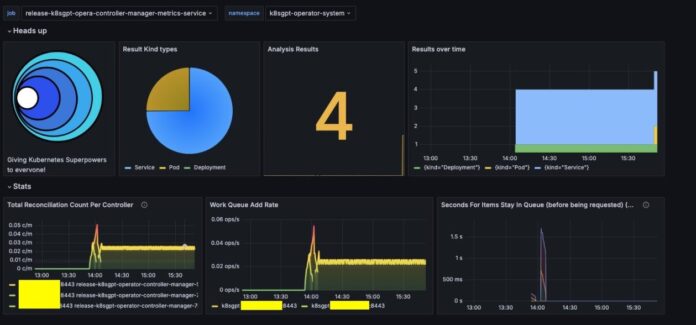The growing complexity of Kubernetes clusters poses a significant challenge to their efficient management. As these environments evolve, solving problems requires deep expertise in multiple areas, including networks, storage, and security. Given that Kubernetes is essential for running critical workloads in businesses, the speed of problem resolution is key to maintaining business continuity.
The advanced generative artificial intelligence tools, such as K8sGPT and Amazon Bedrock, promise to transform the management of Kubernetes clusters. These solutions not only solve problems, but also offer enterprise-level operational intelligence, redefining how teams manage their infrastructure. Thanks to pre-trained knowledge and custom analyzers, these tools facilitate rapid debugging, continuous monitoring, and proactive problem identification, enabling issues to be addressed before they impact critical workloads.
K8sGPT, developed within the Cloud Native Computing Foundation (CNCF), revolutionizes Kubernetes management by scanning clusters and providing information in plain language through advanced AI models, such as Claude by Anthropic and OpenAI. Beyond basic troubleshooting, K8sGPT has self-remediation capabilities, similar to an experienced Site Reliability Engineer, controlling changes and offering rollback mechanisms. Your Model Communication Protocol (MCP) server enables real-time structured interactions with AI assistants.
This advancement represents a paradigm shift, moving from a reactive solution to proactive operational intelligence. AI not only solves problems, but also provides enterprise-grade controls and comprehensive audits. In this context, K8sGPT on AWS with Amazon Bedrock is used in two modes: CLI and Operator, both simplifying cluster management through continuous monitoring and operational intelligence.
The K8sGPT CLI enables on-demand analysis, while the K8sGPT Operator facilitates continuous monitoring within the cluster, integrating with Kubernetes workflows and storing results as custom resources. Both modalities can use Amazon Bedrock models to provide detailed analyses and recommendations.
Additionally, K8sGPT enables the creation of custom analyzers, giving teams the ability to extend their analysis capabilities beyond the defaults. This ensures that organizations can monitor specific aspects of the cluster's health, addressing particular operational needs.
As organizations face the challenges of managing Kubernetes, the combination of K8sGPT and Amazon Bedrock is presented as a pragmatic solution that optimizes the operational load and improves performance. It is evident that artificial intelligence is not just an additional resource, but an essential functionality that helps development and operations teams improve their effectiveness in increasingly complex Kubernetes environments.



